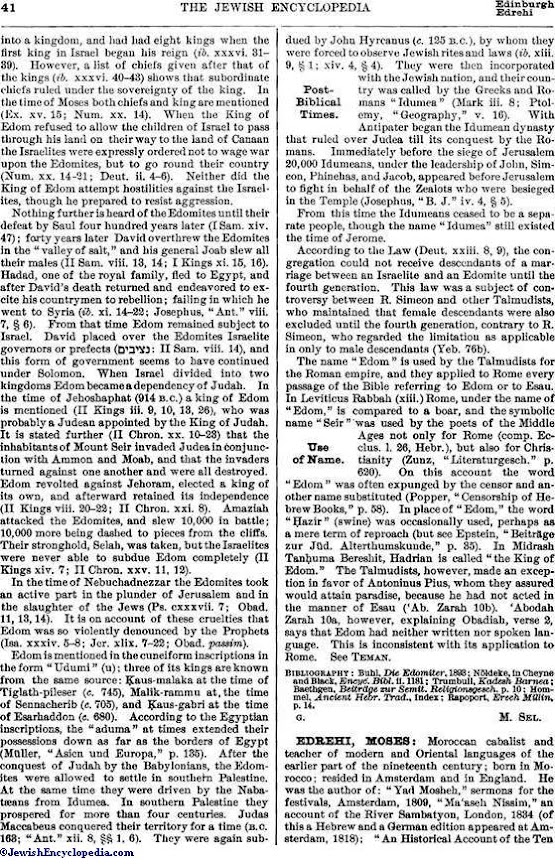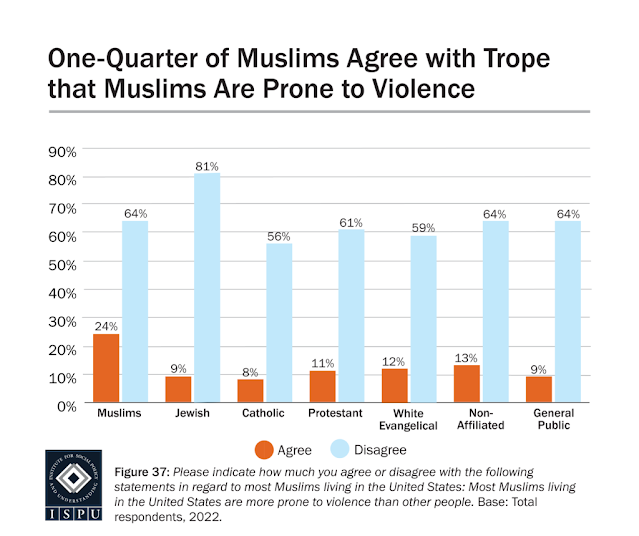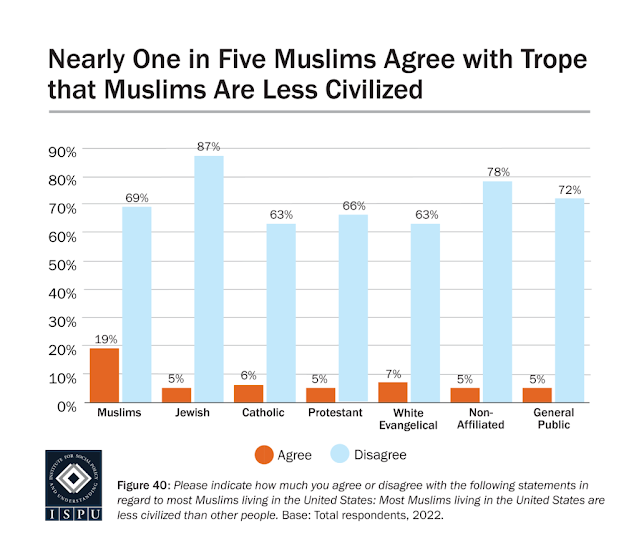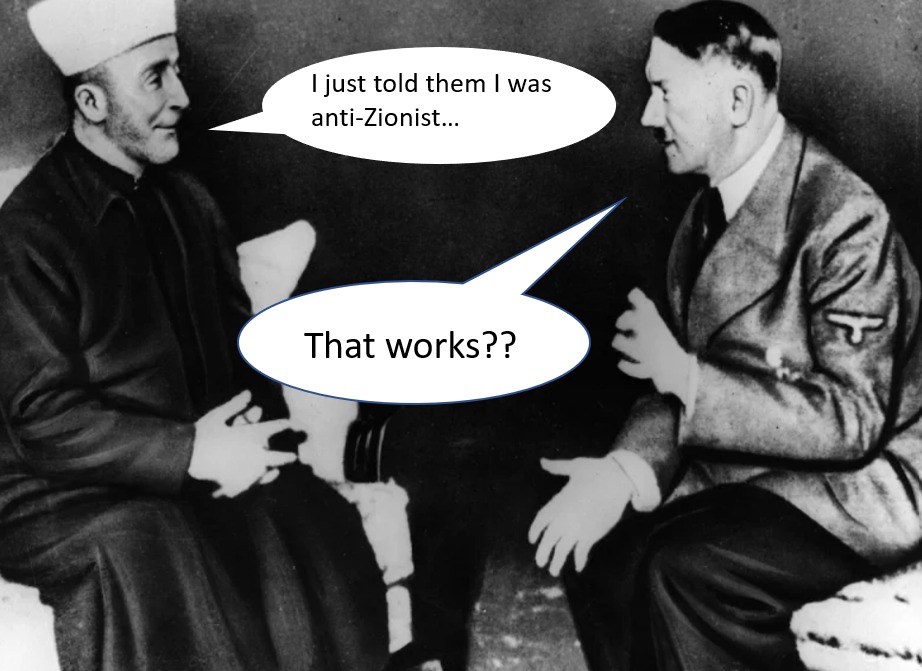Jonathan Tobin: America’s Holocaust failure through the lens of 21st-century politics
The film asks whether Americans will respond to future catastrophes with more concern. But while such pious sentiments seem appropriate, they are also entirely beside the point. We already know how Americans act when confronted with other genocides. In the case of Rwanda, they did nothing. The same is true with respect to the horrors being visited on the Uyghur people in Western China by the Chinese Communist Party regime in Beijing right now.US congressman calls on FBI to probe handling of antisemitic crimes in New York
Genocide is, of course, globally very different. Those being perpetrated outside of the context of a world war in which the murderers are also bent on conquest are bound to be treated less seriously, and that is why no one in the West lifts a finger when mass murders happen in places like Africa or central Asia, where no strategic interests are in play and few journalists are present.
As historian Deborah Lipstadt, the current State Department Special Envoy to Monitor and Combat Anti-Semitism, correctly notes in the film, Nazi Germany largely achieved many of its goals with respect to the Jews. As the late historian Lucy Dawidowicz wrote in her classic work, The War Against the Jews, the German war waged on the Jews was entirely separate from the one they were fighting against the Allies. They won the former while losing the latter. The Allies never really cared about the war on the Jews—or at least not enough to do anything about it before their victory ended the slaughter.
Moreover, the attempt to frame the Holocaust as a function of general intolerance is always a mistake. Anti-Semitism isn’t merely hateful sentiments; it’s a political organizing principle that has attached itself to a number of different ideologies. Then it was Nazism, today it is the Islamism embraced by an Iran that seeks a nuclear weapon with which another Holocaust can be perpetrated. The answer to such threats isn’t open borders for America, amnesty for illegal immigrants or even more people reading The Diary of Anne Frank. The only way to deter a future genocide of the Jews is Jewish empowerment and their ability to defend themselves, something they would only gain after the war with the creation of the state of Israel.
Like all of Burns’ films, “The U.S. and the Holocaust” makes for riveting television and provides plenty of fodder for serious thought. For those who know little about the history of American anti-Semitism and the basics of the Holocaust, it provides an introduction to these subjects.
Yet contrary to the film’s conclusion, the Holocaust tells us nothing about what to do about America’s contemporary immigration debates. The fact that a CNN interview with Burns led to a discussion in which efforts by Florida Gov. Ron DeSantis to ship illegal immigrants to Martha’s Vineyard, whose liberal residents advocate for open borders, were compared to the actions of the Nazis shows just how misleading the filmmaker’s efforts to frame the issue along these lines are. Nor should it help fuel efforts to falsely label those political opponents whom the liberal establishment is trying to smear as fascists and Nazis threatening democracy.
The Holocaust was a chapter of history marked by American failure. But as much as the documentary is told through the prism of what it meant to America, the responsibility for the murder of 6 million Jews belongs to the Nazis and their collaborators. It was a crime that the United States may not have had the power to deter, but it could have done more to stop once it began had its political leadership been willing to do so. That is bad enough. But those who want to apply that lesson to complicated 21st-century political debates while ignoring actual genocides going on in real-time now or seeking to render Israel defenseless in the face of those who are actively plotting another Holocaust, shouldn’t pretend they’ve learned anything from the past.
US House Representative Ritchie Torres on Thursday called on the FBI and US attorney general to investigate New York’s response to surging antisemitism.Hamas Comes to Harvard
Torres, from New York, called for the federal investigation in a letter to FBI Director Christopher Wray, US Attorney General Merrick Garland and Assistant Attorney General Kristen Clarke.
“I am respectfully asking the Civil Rights Division of the Justice Department to consider investigating New York’s systematic failure to police and prosecute hate crimes and to issue recommendations to reform,” Torres said, after expressing his concerns about antisemitic violence.
“The federal government can no longer stand by passively as antisemitic violence goes unchecked and unpunished in America’s largest city,” said the letter, which was provided to The Times of Israel.
Democrat Torres represents New York’s 15th Congressional district in the Bronx and is a firm supporter of Jewish communities and Israel.
In the letter, he highlighted statistics from the Anti-Defamation League showing record numbers of antisemitic attacks in recent years, and an article from Tablet on the low number of serious punishments for anti-Jewish hate crimes.
After the fighting between Israel and Hamas in 2012, Tunisian President Moncef Marzouki announced that he wanted to visit Gaza.
“I congratulate Ismail Haniyeh (the Hamas prime minister) on the victory in Gaza,” he said.
Marzouki had previously met with delegations from Hamas and Islamic Jihad. His support for the Muslim Brotherhood terrorist group was so blatant that even the PLO had warned him not to come to Gaza. After leaving office, Marzouki boarded the Hamas flotilla invading Israel. When the flotilla was intercepted, Israel deported him. These days, Tunisia doesn’t want him either.
But Massachusetts does.
More recently an arrest warrant was issued for the arrest of Marzouki by his own country. He was sentenced to four years in prison for national security violations last year.
Marzouki, then in Paris, was quoted as warning that, “I’ll soon return home to Tunisia and overthrow the incumbent regime” and “I’m waiting for a signal from the militants in Tunisia to decide on the date of my return to Tunis”.
Instead, he’s going to Harvard where there are even more militants than in Tunis.
The Ash Center for Democratic Governance at Harvard’s Kennedy School announced that it’s appointing the international fugitive and longtime Islamist ally as a senior fellow. The Harvard announcement makes no mention of either Marzouki’s support for Islamic terrorism against Jews or the fact that he is a wanted criminal. But they do hail him as a hero of the Arab Spring.
Last year, after a barrage of Hamas rockets and terrorist attacks, Marzouki had phoned Hamas boss Ismail Haniyeh to congratulate him for the “victory for the Arab and Muslim Ummah.”
In an interview with Al Jazeera, Marzouki told the Qatari Islamist media operation, “I have always supported Hamas because it is a national resistance movement. When I was president of Tunisia, I received Khaled Meshaal and Ismail Haniyeh, totally ignoring the US ambassador’s indignation at the meeting.”
Harvard has no objection to this. And instead describes Marzouki as a “freedom fighter.”



















 Tel Aviv, September 15 - A political faction struggling to approach, let alone restore, the legislative clout it held more than twenty years ago has followed the evidence to the only tenable explanation for its collapse in the interim: the electorate hasn't the intelligence necessary to cast the correct ballot and return the faction to its former glory.
Tel Aviv, September 15 - A political faction struggling to approach, let alone restore, the legislative clout it held more than twenty years ago has followed the evidence to the only tenable explanation for its collapse in the interim: the electorate hasn't the intelligence necessary to cast the correct ballot and return the faction to its former glory.

























